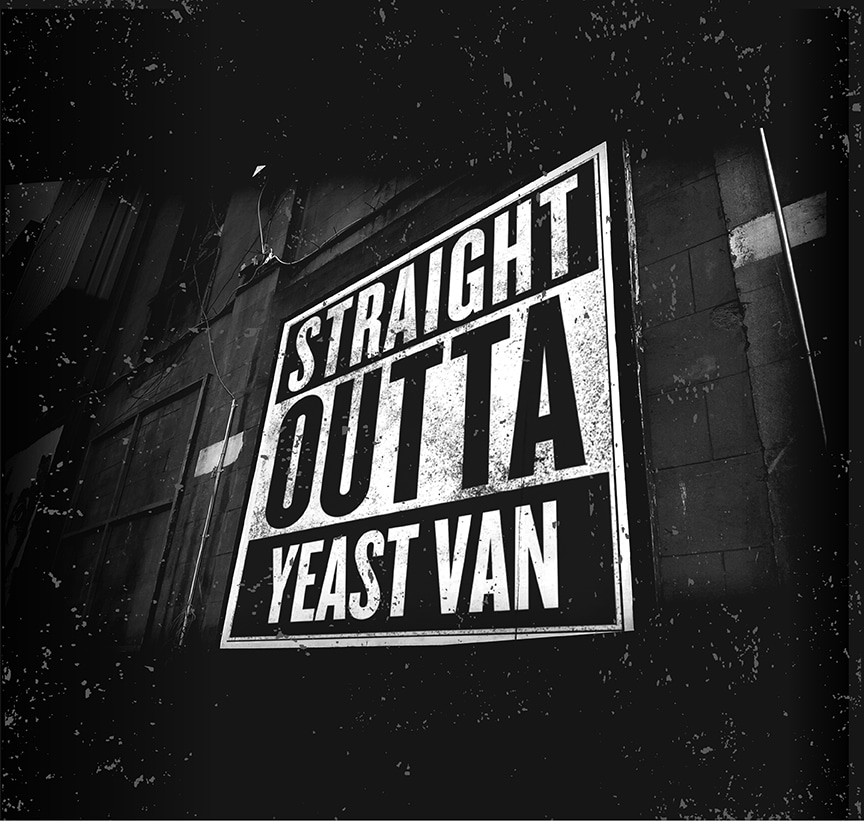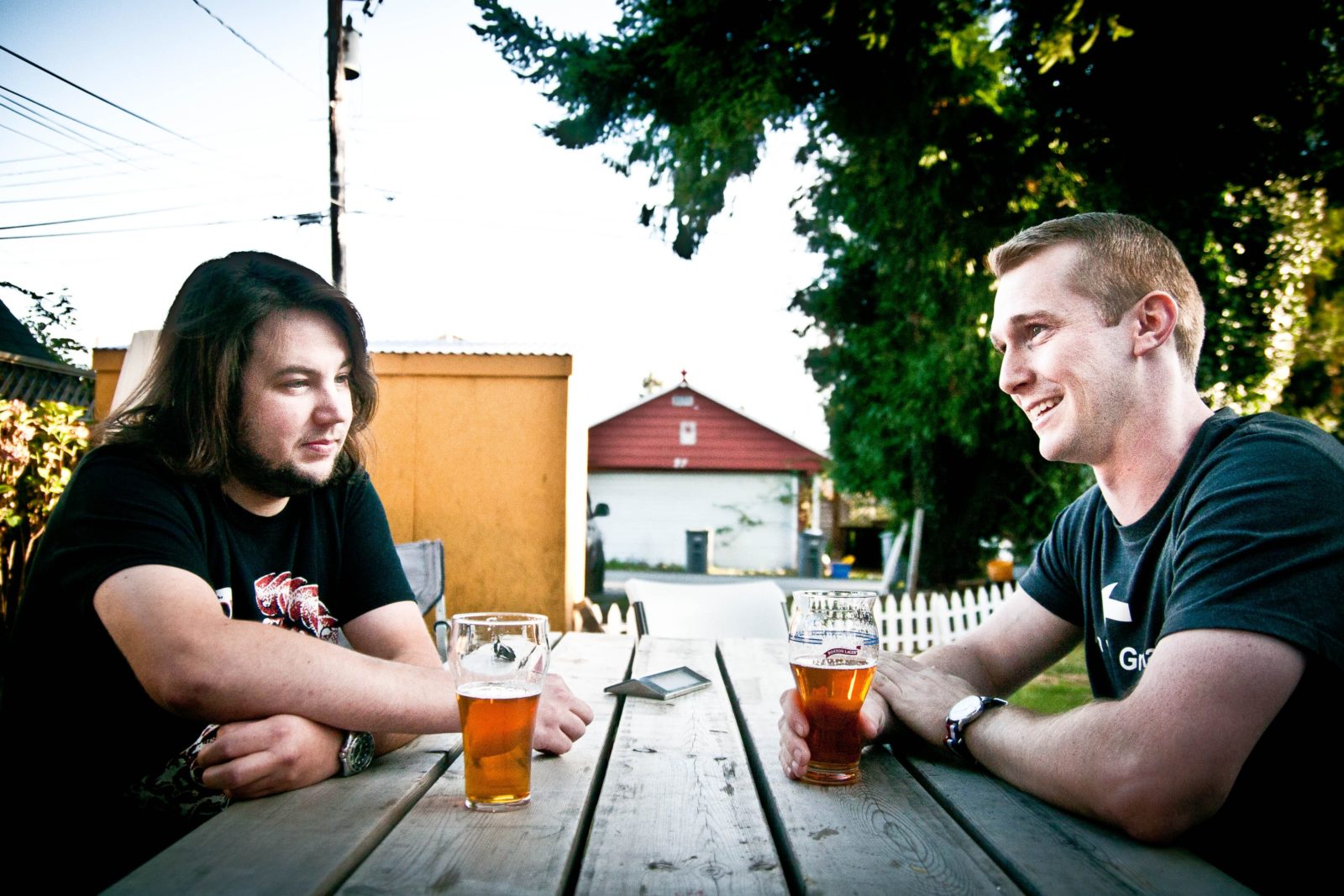
The brewery lounge concept has been revolutionary for B.C.’s beer scene in more ways than one.
As well as offering young breweries a vital source of revenue through a store front, the legal requirement to provide food has pushed many businesses to think seriously about their culinary component.
For some, that means offering oven-fresh pizzas, burgers and other pub favourites. But other breweries are elevating their cuisine further to offer exceptional ethnic and West Coast dishes that tie into important culinary concepts like seasonality and sustainability.
Like most things in B.C.’s craft beer scene, this detailed attention to the food menu can be traced back to one place: Spinnakers in Victoria. Canada’s first brewpub when it opened in 1984, Spinnakers led the way in not only providing a varied menu of fresh meals to pair with fresh beer, but also the whole concept of buying local.
“What we offered people was a whole new take on how to taste beer,” says Spinnakers co-founder and publican Paul Hadfield, “and we gave equal attention to having something good and filling to eat.”
Spinnakers’ push toward hyper-local food began around 1990, after Hadfield decided against opening more brewpub outlets in the U.S. His experiences south of the border had made him aware of future challenges – namely, large chains and their franchises – that were headed for Canada. With just 65 seats to make money from, Hadfield began thinking about how to make Spinnakers survive and thrive.
“We looked back at why we were here in the first place: artisan beer. We should have an artisan kitchen,” Hadfield recalls. “So we went out into the landscape and found people who would grow stuff for us. Because the franchises and the chains couldn’t do that, the food costs would be too high.”
Today, the brewpub sources its food from more than 20 local producers. The process of creating these supply chains has been more difficult, expensive and a logistical, seasonal challenge; but it’s ultimately been worth it for making Spinnakers stand out.
“We ended up with way tastier, way healthier stuff,” Hadfield says. “It helped us in terms of our overall positioning and marketing; let’s just make this a commitment of who we are and what we do.”
More recently, a young batch of B.C. breweries has been striving toward Spinnakers’ benchmark.

The influence is clear on operations like Beach Fire Brewing and Nosh House in Campbell River, which creates a different menu every day based around whatever farm-fresh produce is dropped off at the kitchen in the morning.
“Nothing sits in the kitchen for more than two days because it gets used and then we put something new on the board,” says Beach Fire co-owner Laura Gosnell, who manages the brewery’s kitchen.
“Sometimes it’s like an episode of one of these food shows—‘what are we going to do with these today?’—then you sit and have a chat about it and you come up with something really fun. It drives the creativity, which is really nice.”
Beach Fire’s decision to create a strong food program centered around relationships with local producers was, like Spinnakers, born of economic necessity to get bums on seats. For Gosnell and her team, using every ingredient helps keeps margins tight—as well as keeping the level of food waste close to zero.
No corners are cut: The kitchen even makes its own pasta. But it’s been worth it. The kitchen has given Beach Fire a loyal local following and, with dishes like black bean and chorizo papusa, ale-braised sausage with caramelized cabbage, and raspberry lemon cheesecake, it’s easy to see why it’s regarded by many as the best place to eat in the north Island.
While Beach Fire’s menu begins with a box of ingredients, other brewery kitchens start with a theme, ethnic style or protein vehicle and develop it to the best of their ability.
A prime example is tacos, which are fast becoming the next pub food staple. Very few places in B.C. do them as well as Four Winds Brewing Co. in Delta, which, like Beach Fire, reboots its menu every day.
“The taco itself was a vessel for us to do whatever we wanted,” says Four Winds tasting room manager Seamus Munns.
“We took the approach that we could make anything a taco, really. So we did some traditional stuff, but also some off-the-cuff ideas and we just rolled with it,” he adds, citing fillings like buttermilk-fried mushroom and Brussels sprouts with asiago (which Munns recommends pairing with La Maison table saison).
“So now we’ve created a monster that we have to keep feeding—a taco monster.”
Four Winds’ ethos of doing everything it tackles to the best of its ability has a clear mirror in the brewery’s kitchen, where premium ingredients are sourced from local producers and the whole dish is created from scratch—including the tortilla itself. Today, the kitchen uses a semi-assisted hydraulic press that turns out up to 450 tortillas on busy days.
By the time you’re reading this, Four Winds will have completed a renovation that boosts its tiny kitchen space more than fourfold. With a bigger kitchen will come expanded food options, including antojitos and a tapas-style menu, and extended opening hours.

When it comes to ethnic food at breweries, one B.C. location stands out above the others for its dedication to authenticity. In building an identity rooted in South America, Andina Brewing didn’t hold back when it came to its food program.
During Andina’s incubation, owner Andres Amaya remembers thinking how local breweries could do better than the ubiquitous pretzels and jerky. So he decided to pursue one of his big loves from his Colombian home.
Ceviche—fish or seafood cooked by the citric acid of lemon or lime juice—is commonly washed down with beer in one of Colombia’s many cevicherias. Andina has a rotating list of eight different types of ceviche, featuring Ocean Wise protein, all of them Amaya’s own recipes.
It’s an ideal dish to assemble in a small prep kitchen. “Five minutes to cook the fish with the acidity and it’s done,” Amaya says.
Other exclusive food at Andina includes arepas, empanadas and imported plantain chips, which replace the tortilla chips in the brewery’s “pachos,” its nachos equivalent. Then there’s Amaya’s own thick and juicy passionfruit hot sauce, which he’s on the verge of bottling and selling.
That there’s a market for a Colombian hot sauce made at a brewery on Powell Street is evidence enough of the admirable diversity, creativity and quality shown by B.C.’s beer producers when it comes to food.
Sure you still want to order the wings?




